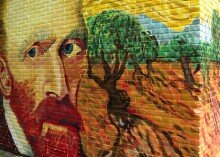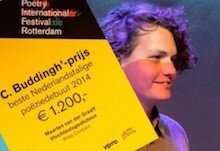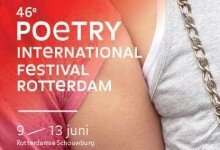Milorad Stojević: A Postmodernist Approach
Milorad Stojević is undeniably one of the most significant and inventive contemporary poets writing in Croatian. His books teem with such abundant linguistic riches, from their titles on, that it is no great task for the reader to pick out from the mass of rhetorical figures amassed in any of his works, “enough metaphors / For generations deprived of Journals to live off / For a few decades at the least” (Prostrijelne rane & other poems).
His is a poetry in constant motion, self-annotating and in dialogue with itself, insatiable, tireless and almost absolutely lacking in apodicticity [absolute certainty, ed.], like a set of long-established and tacitly accepted conventions which are not open to question. For this is not simply a matter of trusting a reliable poet , but rather of assenting to the rules of a game which will show us all that lies both beneath and beyond the limits of language.
Stojević’s poetry was part of the wave of poetic experimentation which precipitated the introduction of a post-modernist sensibility to Croatian literature during the 1970s and 1980s, along with its attendant concepts of literature and art in general. Language became a transparent and thus subversive medium, in an infinite (in principle) set of combinations and co-relationships between signifiers. Taking this as the starting point, all linguistic idioms became not merely equal but also desirable matrices, even privileged ones, capable of directing us to other meanings, inaccessible to or concealed from the standard. But what is subsequently created in this way does not so much point to things in themselves as to the inter-relationships between the parts of the linguistic sign. The text, then, must be read in the light of other texts which ultimately determine it and make it possible.
On the other hand, a postmodernist reading of literature also implies a somewhat unsettling intuition through which the complexity, even impenetrability, of a particular text or poem actually sustains an over-abundance of meanings, and hence a certain value which is not universally accessible. If the origin of one text lies in another text, then its full meaning is only available after informed analysis, i.e. after the identification of as many key referents as possible. The unmediated experience of a poem, a so-called ‘naïve’ reading of it, in other words, is thus consigned to one or another of the dustbins of cultural history.
In each of Stojević’s volumes of poetry we encounter long, tautly constructed chains of metonymy, references, allusions, paraphrases and other linguistic mosaics, stemming from his vast professional acquaintance with Croatian and other Slavic and world literatures. This admirable degree of learning aside, the impulse for such an approach to poetry derives from a specific imperative of pleasure. Satisfaction in its purest, most immediate form has replaced beauty, ushering openly erotic, even pornographic motifs and content directly into the domain of high art. Of course, the borders between the two have always been subject to the times and their conventions, and can therefore be adjusted and redrawn according to judgment and a particular theory of poetics. In other words, as Stojević writes, “contexts are torn up. Following the example of / Paper”. (Prostrijelne rane & other poems).
These borders are additionally undermined by the introduction of materials from a variety of sub-genres of a culture of popular entertainment which has rapidly acquired the status of a touchstone. Stojević’s poetry is thus filled with an abundance of ‘exotic’ motifs arising from the workings of an imagination nourished by texts and images ranging from Zane Gray to Spaghetti Westerns, and other products of an off-the-peg culture. What is more, even when Stojević draws on his own immediate experience in a poem, he immediately relates it to something else it: “To tell the truth, those steps in Odessa / Are unlike those in Sergei’s film”. (Prostrijelne rane & other poems).
It appears that the single, undeniable lyric voice, which might allow a pleasure in poetry to be taken for granted, has been lost, along with the naïve reader. So in his book of poetry, Prostrijelne rane & other poems Stojević presents us with a whole panorama of actors and heroes, most of whom, of course, are from other domains, some imaginary, some less so. Here are an inescapable English lord, Renaissance knights, warriors and courtesans, sailors, soldiers from who knows which armies, photographers, anonymous rogues and vagabonds, plump ladies, chance interlocutors on park benches, hackers, rajahs and other eccentrics. And now there are appearances by contemporary Croatian poets, and even critics (sic!), playing a similar role, perhaps.
There is an entire energetic, irreverent gallery of real and imaginary personas, with rather inauspicious or oddly unsettling characteristics, continually coming and going in these poems, bringing us brilliant and obscure reflections of their fictional and fictionalised realms. However, in this volume the poet himself appears in person on a number of occasions. Whether this signifies a type of “investigation at first-hand”, or is indicative of Stojević’s interest in confessional poetry, he demonstrates by his presence in the poems that is impossible to draw an unambiguous line between a poetry which stems from “the dreaming of language”, and one which predominantly relies upon direct, personal experience.
Written for PIW.
Translated by Kim Burton.








